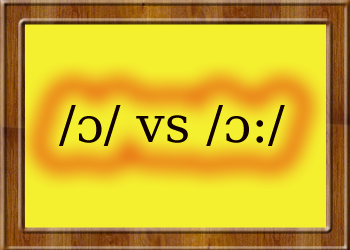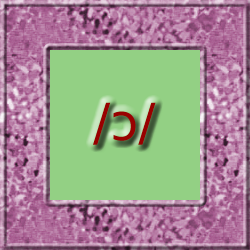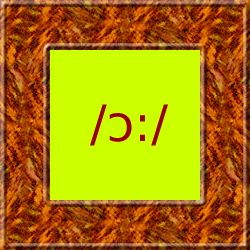3. The more Paco walked, the more tired he got
 |
Have a look at the following words (most of them from the passage above) and guess which ones are pronounced /ɔ/ and which ones /ɔ:/. If you need any help, ask our friend, the robot, for help.
| walk | wok |
| stop |
thought |
| what |
o'clock |
| was |
taught |
| talked |
more |
If you click here you will find some more examples of words which contain /ɔ/, and by clicking here you will find some others containing /ɔ:/. All of them in contrast with the diphthong /əu/.
Now, watch the videos to see how both sounds are correctly pronounced.
| /ɔ:/ |
|
|
/ɔ/ |
Although there are not specific rules to know how to pronounce words or sounds in English, we will try to help you distinguish both vowel sounds by means of common spellings for them.
 |
| By Eduardo Amorim. C. Commons |
1. The top door opened.
a. /ɔ/:
b. /ɔ:/:
2. Paco's father had bought a new fishing rod for them
a. /ɔ/:
b. /ɔ:/:
3. Horses were locked before nobody could say a word.
a. /ɔ/:
b. /ɔ:/:
4. A lot of people there were taught that it was not always a good idea to tell the truth.
a. /ɔ/:

By mainblanche. C. Commons
b. /ɔ:/:
5. The more Paco walked, the more tired he got.
a. /ɔ/:
b. /ɔ:/:

